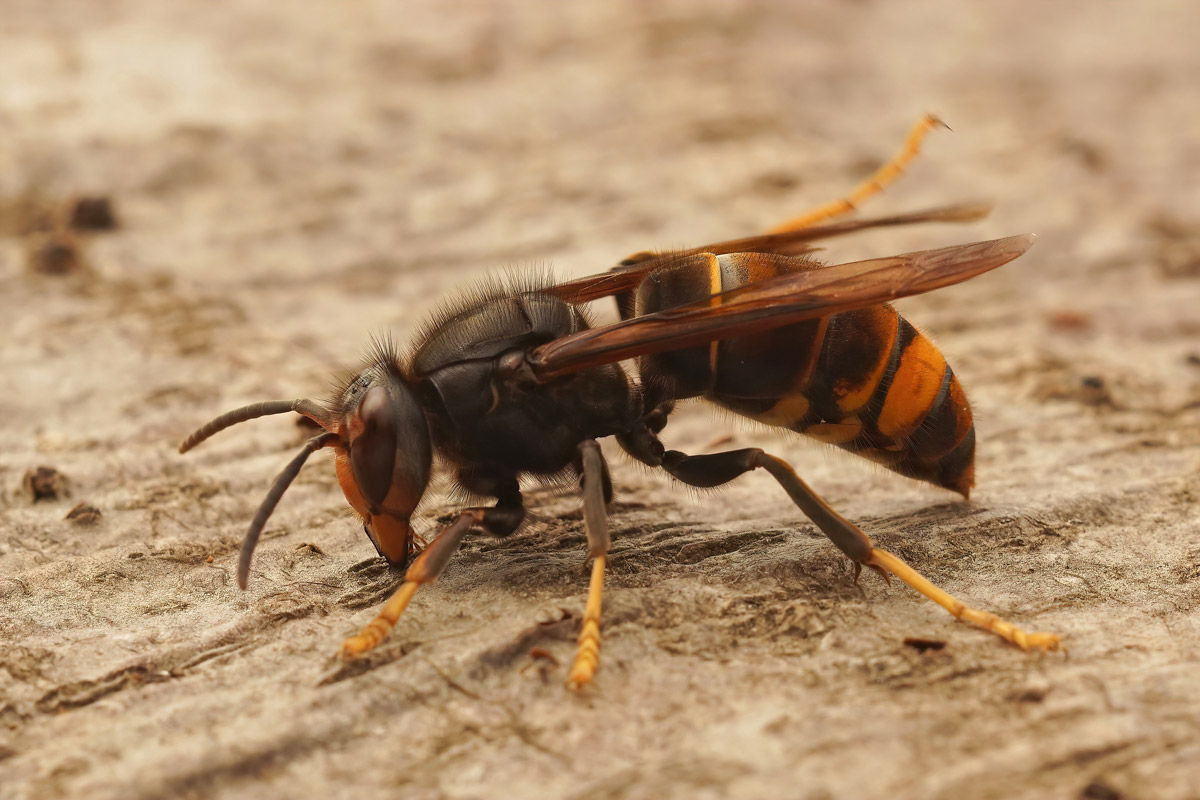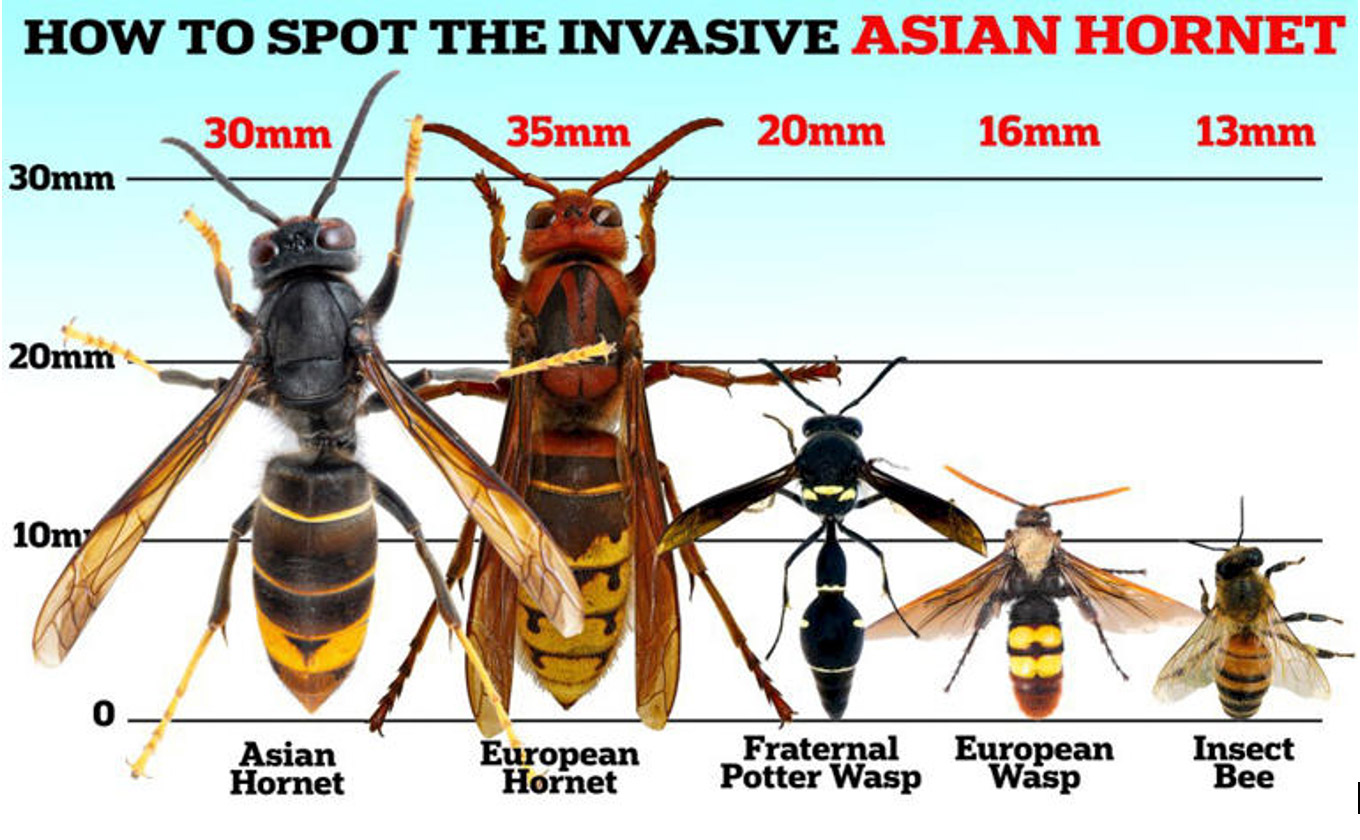The Rising Threat of Asian Hornets: A Record Number of Sightings in the UK
The Asian hornet (Vespa velutina) has become a growing concern for the UK. Like wasps, they are both members the Vespidae family, but differ in size, appearance, and behaviour. Hornets are larger, with rounded bodies and brownish-yellow markings, while wasps are slimmer with bright yellow and black stripes.
Native to Southeast Asia, these invasive insects were first detected in France in 2004 and have since spread across Europe, transported around in Cargo. This year, the UK has recorded unprecedented sightings, raising alarms among environmentalists, beekeepers, and the general public.
Let’s look into what makes these hornets a significant threat, the impact of their presence, and the steps being taken to manage this invasion.
Understanding the Asian Hornet
Asian hornets are slightly smaller than the native European hornet, with a distinctive dark brown or black velvety body and yellow-tipped legs (socks!). They are known for their predatory behaviour, particularly towards honeybees, which are crucial for pollination and biodiversity. A single hornet can hunt down and kill up to 50 honeybees in a day, and a group can decimate entire hives, raising concerns that they pose a severe threat to the beekeeping industry and the environment.
Record Sightings in the UK
DNA testing from the National Bee Unit (NBU) has confirmed that Asian hornets have survived winter in the UK for the first time.
So far this year, the UK has seen a record number of Asian hornet sightings. These sightings have been reported across various regions, from the south coast to parts of Scotland. This implies the Asian hornets are here, and they are here for the long haul!
The rise in sightings is attributed to several factors:
- Climate Change: Warmer temperatures and milder winters have created favourable conditions for the hornets to survive and expand their range.
- Increased Awareness: Improved public awareness and reporting systems have led to more accurate and timely sightings.
- Natural Spread: The species’ natural dispersal mechanisms allow them to cover large distances quickly.
The presence of Asian hornets in the UK poses multiple risks:
- Ecological Impact: By preying on honeybees and other pollinators, Asian hornets disrupt local ecosystems and threaten plant biodiversity.
- Economic Consequences: The beekeeping industry faces significant losses due to the destruction of hives, affecting honey production and crop pollination services.
- Public Health: While generally not aggressive towards humans, Asian hornets can become a hazard if their nests are disturbed, leading to painful stings and potential allergic reactions.
How Can You Help
Everyone can play a part in managing the Asian hornet threat:
- Learn to Identify: Familiarise yourself with the appearance of Asian hornets and their nests.
- Report Sightings: If you spot an Asian hornet or nest, report it immediately using the appropriate channels, such as the Asian Hornet Watch app or local authorities.
- Support Local Beekeepers: Engage with and support local beekeeping associations on the front lines of this battle.
Conclusion
The record number of Asian hornet sightings in the UK is a wake-up call to the potential ecological and economic chaos these invasive species can cause. We can decrease their impact and protect our precious pollinators and biodiversity through collective efforts in monitoring, reporting, and eradicating nests.
Stay vigilant, informed, and proactive in the fight against the Asian hornet invasion.



